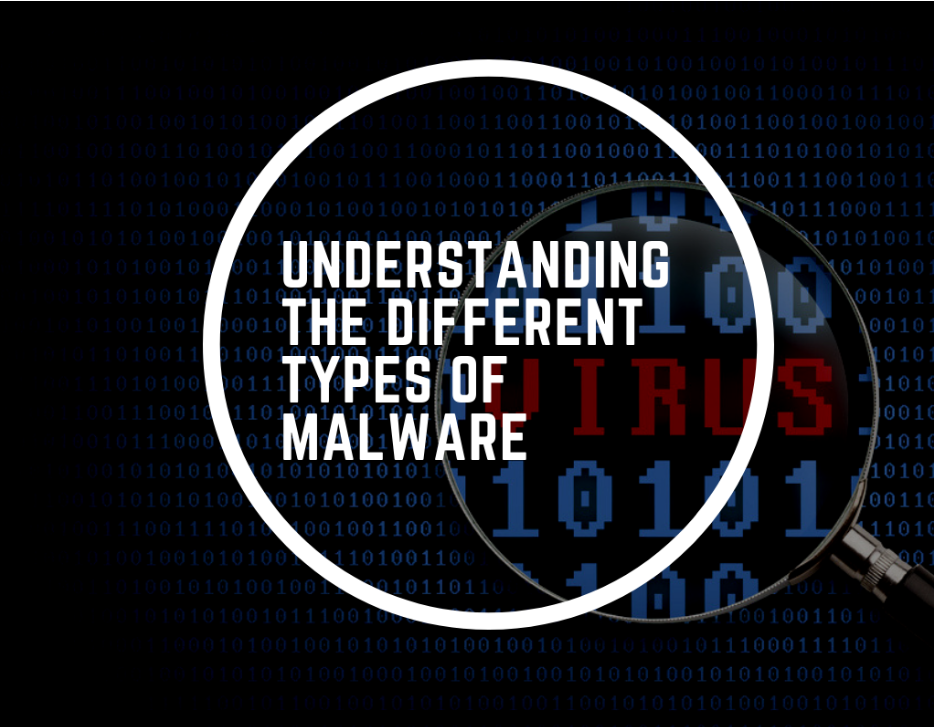Understanding the Different Types of Malware

Malicious software or malware is commonly discussed when dangerous software is used to access and infect a computer or network without being detected. A lot of people hear terms like viruses, adware, spyware, ransomware, worms, or Trojan horses; these are all different types of malwares that can severely damage computers. Cybersecurity companies are constantly on the lookout to find these treacherous codes and put a stop to them before they cause significant damage. But what are each of them and what do they do?
All forms of malware are extremely dangerous once they infiltrate a device, but the way malware functions differ depending on the type. Below is a list of several types of malware and short definitions of how they work:
Viruses
Function – Software that replicates itself over and over again once it is activated.
Threat — Viruses will corrupt or delete data.
Location — Comes in email.
Adware
Function — Software that throws advertisements up on your screen (pop-ups).
Threat — Can also corrupt your server and disable you from getting online.
Location — Found on the web; can appear through potential unwanted programs.
Spyware
Function — software that sneakily clings to your computer’s OS.
Threat — collects all kinds of information.
Location — Can come in through terms and conditions you agree to.
Ransomware
Function — Software from crypto-virology that will lock you out of your own files
Threat — They will block you from your own files until you pay a ransom.
Location — Usually carried in through a download or an attachment in an email.
Extra — Outlaws!
Worms
Function — Software that relies on vulnerabilities in a computer and spreads like a virus.
Threat — They replicate to a point that your network is damaged, and bandwidth consumed.
Location — Found in vulnerable codes.
Trojans
Function — Software that looks legitimate but is activated once its program is clicked.
Threat — Designed to damage your computer in any way — disrupt, steal, infect, etc.
Location — They appear in what looks like normal social media ads or other normal links.
These descriptions only summarize some of the key components of what these malicious software programs can do, but they all carry an equal amount of concern if your computer is affected. In addition, there are a few other types of malwares that we haven’t discussed — Botnet, Rootkit, Spam, etc.
When malware was first created, it was used as pranks and experiments, but now it is always destructive. Cybersecurity companies use programs such as SIEM (Security Information and Event Management) solutions to combat these dangerous attacks. If your network or computer is infected by malware, you should contact a cybersecurity company immediately.
Malware is not the only form of dangerous online attack, there is also spoofing, phishing, and other security hackers that might be able to penetrate your computer’s basic line of defense. To detect any threats before they become a problem, contact us today.
To receive a complimentary Third-Party Penetration, please click on the ‘CONTACT US’ link and complete the provided form.
Your security is our utmost concern, and we are committed to ensuring your protection in the digital realm. At TGC Services, safeguarding your business takes precedence. We are dedicated to fortifying your position in the digital landscape, bolstering security awareness, and enhancing performance, compliance, and overall benefits tailored to your specific business requirements.
FREE IT BUYERS GUIDE

Before you reach out to an IT Consultant, make sure you read this FREE report first!
Attention Business Owners, CEOs, and Executive Managers in the Greater Orange County area seeking to outsource IT support for your company: This report is a goldmine of crucial insights that will greatly assist you in your quest to find a reliable and trustworthy IT support firm.
Please fill out the form below to have the Free IT Buyers Guide available immediately!
FREE IT Buyers Guide
Important! We hate spam as much (or more!) than you and promise to NEVER rent, share, or abuse your e-mail address and contact information in any way.
"*" indicates required fields
